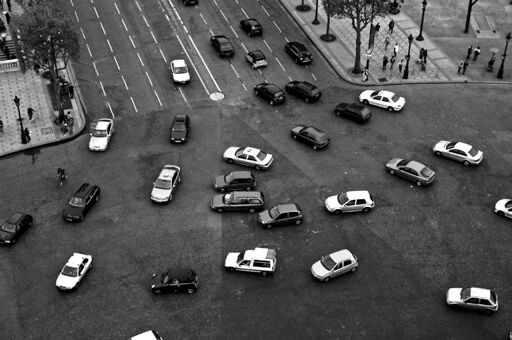Short read, if TLDR, crudely shortened here:
The apparent independence of the automobile owner was only concealing the actual radical dependency. The car would oblige the owner to consume and use a host of commercial services and industrial products that could only be provided by some third party. The dream of every capitalist was about to come true. Everyone was going to depend for their daily needs on a commodity that a single industry held as a monopoly.
When everyone claims the right to drive at the privileged speed of the bourgeoisie, everything comes to a halt, and the speed of city traffic plummets. If the car is to prevail, there’s still one solution: get rid of the cities. That is, string them out for hundreds of miles along enormous roads, making them into highway suburbs. But the underside of this solution is obvious: ultimately people can’t get around conveniently because they are far away from everything.
"But at least in this way you can escape the hell of the city once the workday is over.” The car has made the big city uninhabitable. You have to have a car to escape from the urban hell of the cars. “Give us more cars so that we can escape the destruction caused by cars.” Capitalist industry has thus won the game: the superfluous has become necessary.
In the final analysis, the car wastes more time than it saves and creates more distance than it overcomes.
The alternative to the car will have to be comprehensive. For in order for people to be able to give up their cars, it won’t be enough to offer them more comfortable mass transportation. They will have to be able to do without transportation altogether because they’ll feel at home in their neighborhoods, their community, their human-sized cities, and they will take pleasure in walking from work to home-on foot, or if need be by bicycle. No means of fast transportation and escape will ever compensate for the vexation of living in an uninhabitable city in which no one feels at home or the irritation of only going into the city to work or, on the other hand, to be alone and sleep.
What is to be done to get there? Above all, never make transportation an issue by itself. Always connect it to the problem of the city, of the social division of labour, and to the way this compartmentalizes the many dimensions of life. One place for work, another for “living,” a third for shopping, a fourth for learning, a fifth for entertainment. The way our space is arranged carries on the disintegration of people that begins with the division of labour in the factory. It cuts a person into slices, it cuts our time, our life, into separate slices so that in each one you are a passive consumer at the mercy of the merchants, so that it never occurs to you that work, culture, communication, pleasure, satisfaction of needs, and personal life can and should be one and the same thing: a unified life, sustained by the social fabric of the community.



